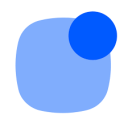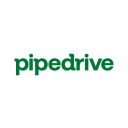Overloop (ex. Prospect.io) vs Reply.io: Which sales engagement platform is right for you?
- 01Overloop (ex. Prospect.io) vs Reply io: overview
- 02What's the difference between Overloop (ex. Prospect.io) and Reply io?
- 03Overloop (ex. Prospect.io) pros and cons
- 04Reply io pros and cons
- 05Overloop (ex. Prospect.io) compared to Reply io
- 06Reply io compared to Overloop (ex. Prospect.io)
- 07Features comparison
- 08Overloop (ex. Prospect.io) vs Reply io: Which is the best for your business?
- 09Promotions on Prospecting software
- 10Alternatives to Overloop (ex. Prospect.io) & Reply io
Save up to $2,160 on Reply io
Save up to $2,160 on Reply io
Sales engagement and email outreach are crucial for many businesses aiming to generate leads, build customer relationships, and ultimately drive sales. Leveraging sales automation tools can help you streamline your outreach, optimize follow-ups, and gather insights into your prospects' behavior.
However, choosing the right sales engagement platform is key to boosting your sales efforts effectively. In this article, we compare two popular solutions—Overloop vs Reply.io. By understanding their core features, use cases, and primary differences, you can determine which one best aligns with your business needs. Let’s dive in!
Overloop (ex. Prospect.io) vs Reply io: overview
Overloop and Reply.io are two leading sales engagement platforms, each bringing unique strengths to meet specific user needs.
Overloop, formerly known as Prospect.io, is well-regarded for its intuitive interface and focus on simplicity in managing email outreach campaigns. It is a great option for small to mid-sized teams looking for a straightforward solution to generate leads, manage prospecting, and automate follow-ups. In contrast, Reply.io offers a more comprehensive set of features, including multichannel outreach, advanced automation capabilities, and powerful analytics. It caters to a wide range of users, from startups to larger sales teams, with scalability and deeper customization options.
Now, let’s dive into the Overloop vs. Reply.io comparison to help you make an informed decision when choosing the right sales engagement tool for your business.
What's the difference between Overloop (ex. Prospect.io) and Reply io?
Overloop and Reply.io are both powerful tools designed to help sales teams streamline outreach and automate prospecting efforts. While they share similarities in their core offerings, each platform has unique features and functionalities that cater to different types of users.
Overloop is best known for its simplicity and easy-to-use interface, making it a great choice for smaller sales teams or businesses that need an efficient way to manage their outreach without the need for extensive configuration. Overloop allows users to create targeted campaigns, track prospect interactions, and manage sales pipelines—all in a streamlined manner. It focuses primarily on email outreach, with built-in CRM functionalities that help users organize leads and gain valuable insights.
On the other hand, Reply.io offers a more comprehensive approach to sales engagement, with features beyond just email outreach. Reply.io supports multichannel communication, including LinkedIn messages, calls, and SMS, providing a broader scope for reaching potential leads. Additionally, it has advanced automation capabilities that allow for detailed workflow customization and more sophisticated targeting. Reply.io’s AI-driven features, such as email quality scoring and suggestions, make it an excellent choice for larger teams or organizations looking for scalable solutions with more advanced capabilities.
There are also notable differences in how each platform handles pricing and scalability. Overloop's pricing is based on the number of users and includes essential features for outreach and lead management, making it suitable for smaller teams. In contrast, Reply.io’s pricing scales with usage, which can be more cost-effective for businesses with growing outreach needs.
In terms of support, Reply.io offers more extensive assistance with onboarding, while Overloop keeps things simpler with self-service support options. Your choice between Overloop and Reply.io will depend on whether you need a straightforward email outreach solution or a more advanced, multichannel sales engagement platform.
20% off all plans for 12 months on Reply io
Get 20% off all plans for 12 months on Reply io and up to $2,160 savings with Secret.
Overloop (ex. Prospect.io) pros and cons
What are the advantages of Overloop (ex. Prospect.io)?
- User-friendly interface: Overloop has a simple and intuitive interface, making it easy for users to manage email campaigns, even with minimal technical knowledge. This reduces the learning curve for new users.
- Built-in CRM: It includes a built-in CRM for managing contacts and sales pipelines, allowing users to keep all their outreach and prospecting data in one place without the need for additional tools.
- Personalized email sequences: Overloop offers the ability to create customized email sequences, enabling users to set up personalized outreach campaigns that increase engagement rates.
- Good reporting and analytics: The platform provides useful reporting tools, giving insights into campaign performance, such as open rates, reply rates, and click-through rates, helping users optimize their strategies.
- Affordable for small teams: Overloop's pricing structure is straightforward and cost-effective for small to mid-sized teams looking for an outreach solution without the need for a big investment.
What are the disadvantages of Overloop (ex. Prospect.io)?
- Limited multichannel outreach: Unlike some competitors, Overloop is limited primarily to email outreach, lacking the ability to reach prospects through other channels like LinkedIn or SMS, which can restrict engagement opportunities.
- Basic automation features: The automation features in Overloop are relatively basic compared to some other sales engagement tools. It may lack the advanced workflow customization that larger or more complex teams need.
- Limited scalability: Overloop may not be as well-suited for larger enterprises or organizations with extensive outreach needs. Its feature set is tailored more for small to medium-sized businesses.
- Integrations can be limited: While it supports essential integrations, Overloop’s integration options may be limited compared to other platforms, potentially requiring additional tools for comprehensive workflows.
- Customer support limitations: Overloop's customer support is primarily self-service with limited options for direct assistance. Users may need to rely on documentation, which could be a downside for those needing more hands-on support.
Reply io pros and cons
What are the advantages of Reply io?
- Multichannel outreach: Reply.io supports email, LinkedIn, SMS, and voice calls, providing a comprehensive multichannel approach for reaching prospects, which helps increase engagement opportunities.
- Advanced automation features: The platform offers sophisticated automation, allowing users to create complex workflows and sequences that save time and enhance personalization throughout the sales process.
- AI-driven tools: Reply.io includes AI-driven features like email quality scoring and suggested improvements, which help users craft more effective outreach messages and improve campaign performance.
- Scalability: Reply.io is designed to grow with your business, making it suitable for both small teams and larger enterprises. Its scalability allows businesses to adjust their usage as their outreach needs expand.
- Comprehensive analytics and reporting: The platform provides in-depth analytics on outreach performance, including detailed insights into open rates, reply rates, and conversion rates, enabling users to make data-driven decisions.
What are the disadvantages of Reply io?
- Complexity for new users: Due to its advanced features and multichannel capabilities, Reply.io can be overwhelming for beginners or smaller teams without experience in sales automation tools.
- Higher cost: Reply.io’s pricing can be relatively high, especially for teams that require multiple users and use all the available channels, making it less ideal for startups or small businesses on a tight budget.
- Limited CRM capabilities: Reply.io does not offer built-in CRM functionalities as comprehensive as some competitors. Users may need to integrate it with an external CRM for more robust contact management.
- Learning curve: The platform’s extensive features require a learning period to fully understand and utilize effectively. Users may need time to get accustomed to the advanced automation and multichannel options.
- Integration dependencies: Reply.io requires integration with other tools for a complete sales stack, which can increase setup time and complexity, especially for users looking for an all-in-one solution.
Compare Reply io to other tools
Overloop (ex. Prospect.io) compared to Reply io
Overloop and Reply.io are both robust sales engagement tools, but they cater to different needs. Overloop is designed for simplicity, focusing primarily on email outreach, making it ideal for small to mid-sized teams looking for a straightforward solution with a built-in CRM.
In contrast, Reply.io offers a more advanced platform with multichannel outreach capabilities, including LinkedIn, SMS, and calls, which provides greater flexibility for larger teams and enterprises. Reply.io also includes powerful automation features and AI-driven tools, making it more suitable for those who need scalability and a sophisticated approach to their sales engagement strategy.
Is Overloop (ex. Prospect.io) better than Reply io?
Whether Overloop is better than Reply.io depends on your business needs. Overloop excels in offering a simple, cost-effective solution for email-focused outreach with a built-in CRM, making it a solid choice for smaller teams that prioritize ease of use and straightforward workflows.
On the other hand, if your sales strategy requires a diverse range of communication channels and more sophisticated automation, Reply.io’s multichannel approach and AI-driven features provide greater versatility and customization options. Overloop is better for simplicity and affordability, while Reply.io is superior for scalability, advanced capabilities, and multichannel engagement.
What is Overloop (ex. Prospect.io) best used for?
Overloop is best used for managing email outreach campaigns and lead generation efforts for small to mid-sized sales teams. It provides an intuitive platform to create, automate, and track personalized email sequences, making it a great tool for nurturing leads and driving prospect engagement. The built-in CRM helps teams efficiently manage their contacts and sales pipelines, offering all the essential features in one place.
Overloop is particularly well-suited for businesses that want a simple yet effective solution to streamline their prospecting and follow-up processes without needing extensive multichannel outreach capabilities or complex configurations.
Can Overloop (ex. Prospect.io) replace Reply io?
Overloop can replace Reply.io for users primarily focused on email outreach and managing a straightforward sales process. It offers essential tools like email automation, lead management, and a built-in CRM, which can fulfill the needs of small to mid-sized sales teams.
However, for users requiring multichannel outreach (such as LinkedIn, SMS, and calls), more advanced automation features, and extensive customization, Overloop may fall short compared to Reply.io. Reply.io’s multichannel capabilities and scalability make it a better choice for larger teams or businesses with more sophisticated outreach requirements, whereas Overloop is more suited to simpler, email-focused campaigns.
Is Overloop (ex. Prospect.io) cheaper than Reply io?
Overloop is generally more affordable than Reply.io, particularly for small to mid-sized sales teams focused on email outreach. Overloop’s pricing structure is straightforward and based on user numbers, offering an attractive entry point for businesses with limited budgets. Reply.io, while offering advanced multichannel capabilities and extensive features, tends to be more costly, especially as usage scales.
The additional cost reflects Reply.io’s support for multichannel outreach, automation, and AI-driven tools, which add value for larger teams and sophisticated campaigns. Therefore, Overloop is a more budget-friendly option for those needing a simpler email-centric solution without the added complexities.
Is there a better Prospecting software than Overloop (ex. Prospect.io)?
When evaluating sales engagement software, it's important to consider if there might be a better solution than Overloop for your specific prospecting and outreach needs.
Notable alternatives to Overloop include Reply.io, Salesloft, Outreach, and Apollo.io, each offering distinctive strengths for sales automation and multichannel engagement.
The best choice depends on your team's unique sales objectives, desired communication channels, and automation complexity. While Overloop offers a user-friendly platform with integrated CRM capabilities for email outreach, other tools may provide more advanced features, scalability, or support for multiple communication channels, making them better suited for businesses with diverse sales engagement strategies.
Reply io compared to Overloop (ex. Prospect.io)
Reply.io and Overloop are both sales engagement platforms, but they serve different needs. Reply.io offers a comprehensive multichannel approach, allowing outreach via email, LinkedIn, SMS, and phone calls, making it ideal for larger teams and sophisticated sales campaigns. It also provides advanced automation, workflow customization, and AI-driven tools for optimizing outreach.
In contrast, Overloop focuses on simplicity and efficiency in email prospecting, with a built-in CRM that caters well to small to mid-sized teams. While Reply.io provides more diverse communication options and scalability, Overloop is better for those seeking an affordable, straightforward solution for email outreach.
Is Reply io better than Overloop (ex. Prospect.io)?
Whether Reply.io is better than Overloop depends on your team's requirements. Reply.io stands out with its multichannel outreach, making it highly effective for comprehensive sales campaigns that require varied communication methods. Its advanced automation and AI-driven features allow for greater workflow customization, which can significantly enhance productivity for larger teams.
However, if your primary need is a simple, budget-friendly platform focused on email prospecting, Overloop is a more suitable option. Therefore, Reply.io is better for businesses seeking scalability, multichannel communication, and sophisticated automation, while Overloop is ideal for smaller teams looking for a straightforward email outreach solution.
What is Reply io best used for?
Reply.io is best used for automating and scaling multichannel sales outreach, making it ideal for sales teams seeking comprehensive engagement strategies. It allows users to connect with prospects through email, LinkedIn, SMS, and phone calls, providing diverse ways to communicate effectively. With advanced automation capabilities, Reply.io helps streamline workflows, schedule follow-ups, and personalize outreach at scale. Its AI-driven features assist in optimizing email content for higher response rates.
This platform is particularly well-suited for teams looking for scalability, detailed reporting, and flexibility in engaging with prospects across multiple channels to enhance lead generation and sales efforts.
Can Reply io replace Overloop (ex. Prospect.io)?
Reply.io can replace Overloop for users who need a more advanced, multichannel sales engagement solution. While Overloop focuses on email outreach and offers a simple CRM, Reply.io goes beyond email by supporting communication through LinkedIn, SMS, and phone calls, making it more versatile for outreach.
Additionally, Reply.io’s advanced automation and AI-driven features provide better tools for optimizing campaigns, which is beneficial for larger teams or those seeking sophisticated workflows. However, if a business only requires basic email outreach with a simple interface, Overloop might be more suitable, as Reply.io's additional features may be unnecessary and costlier.
Is Reply io cheaper than Overloop (ex. Prospect.io)?
Reply.io is generally more expensive than Overloop, particularly for smaller teams or those with basic outreach needs. Reply.io’s pricing reflects its extensive features, including multichannel outreach, advanced automation, and AI-driven tools, which add significant value for larger or more sophisticated sales operations.
Overloop, by contrast, focuses on email outreach and includes a built-in CRM, making it more affordable for businesses looking for a straightforward solution. Overloop's simpler pricing model and focus on core features make it a budget-friendly option for teams without the need for Reply.io's advanced functionalities and multichannel capabilities.
Is there a better Lead Management software than Reply io?
When evaluating sales engagement software options, it’s important to consider if there might be a better solution than Reply.io for your specific outreach needs.
Some notable alternatives to Reply.io include Salesloft, Waalaxy, Apollo.io, and Overloop, each offering unique features for automating and scaling sales efforts.
The choice of sales engagement software depends on your team's outreach objectives, preferred communication channels, and desired level of automation. While Reply.io provides a comprehensive multichannel platform, other tools may offer more advanced analytics, industry-specific capabilities, or more cost-effective options for smaller teams that need only email or simpler automation features.
20% off all plans for 12 months on Reply io
Get 20% off all plans for 12 months on Reply io and up to $2,160 savings with Secret.
Features comparison
Reply.io Stands Out Over Overloop for a Superior User Experience
In the world of SaaS software, delivering an exceptional user experience is a key determinant in boosting productivity and efficiency. When comparing Overloop and Reply.io, it's evident that Reply.io provides a seamless interface that is highly intuitive and easy to navigate. With a clean layout, Reply.io ensures users can efficiently access key features like multichannel outreach and campaign automation without confusion.
For instance, setting up a multichannel workflow in Reply.io is straightforward, thanks to its well-organized interface and helpful prompts. In contrast, Overloop, while effective for email outreach, may feel less refined and limited in terms of navigation efficiency.
Reply.io Surpasses Overloop in Integration Capabilities
The ability to integrate with other software tools is essential for streamlining workflows and improving overall operational efficiency. In this respect, Reply.io has a slight edge over Overloop, offering an extensive array of integrations with popular tools, from development platforms to communications apps, such as Zapier, Slack, Salesforce, HubSpot, and Pipedrive. This wide spectrum of integrations allows businesses to create a seamless ecosystem where data flows effortlessly between platforms, enhancing productivity and communication.
For instance, integrating Reply.io with Salesforce enables automatic data synchronization, reducing manual input. Overloop also provides integration options, but they are relatively limited, making Reply.io a better choice for organizations relying on third-party applications.
Overloop Excels in Team Collaboration Compared to Reply.io
With its customizable dashboards, Overloop takes team collaboration to a higher level, offering features that make it easy for team members to stay informed and coordinate effectively. Users can assign tasks directly within the platform, share templates for email sequences, and create tailored views to track the team's activities in real-time, ensuring everyone is aligned with ongoing campaigns. For example, sharing templates across team members simplifies the creation of consistent outreach messages.
In comparison, Reply.io also supports team collaboration, with a focus on task sharing and progress tracking, but it lacks the depth of customization that Overloop offers for dashboards.
Reply.io Outshines Overloop for Lead List Building Efficiency
Reply.io excels in lead list building by providing access to a vast database of over 140 million contacts, enabling users to quickly generate accurate lead lists without manual data searching. This feature significantly reduces the time spent on prospecting while improving the quality of outreach, as users can easily filter contacts based on specific criteria such as industry, location, and job title. For instance, a sales team targeting decision-makers in tech companies can quickly narrow down relevant leads.
In contrast, Overloop also provides lead generation tools but lacks the extensive contact database that Reply.io offers, making it less efficient for rapid lead sourcing.
Both Overloop and Reply.io Excel in Automation but Cater to Different Needs
Both Overloop and Reply.io offer strong automation features designed to boost productivity by eliminating redundant tasks. Overloop's automation focuses on creating efficient workflows to reduce recurring low-value activities, such as scheduling follow-up emails, tagging contacts based on actions, or automatically updating lead statuses. For example, Overloop allows users to create custom workflows that manage email sequences and pipeline stages, saving time on repetitive administrative work.
On the other hand, Reply.io is designed to streamline business processes through automated execution based on sequences, such as sending personalized emails across different channels at optimal times. Its advanced sequencing capabilities ensure prospects receive timely communication, improving engagement. Both platforms effectively cut down repetitive tasks, but Reply.io's approach caters more to multichannel, sequence-based automation, while Overloop emphasizes workflow customization for simpler processes.
Overloop Leads Over Reply.io in Comprehensive Email Campaign Creation and Tracking
Overloop provides a comprehensive platform for creating, launching, and tracking email campaigns, allowing users to compose highly personalized messages and monitor crucial metrics like open rates, click-through rates, and responses. This allows teams to gain insights into which campaigns perform well and which need adjustment. For example, users can track email engagement over time to identify the best-performing subject lines and content.
Although Reply.io offers channels for engaging prospects, such as LinkedIn, SMS, and calls, its focus on multichannel outreach doesn't include dedicated tools for standalone email campaign creation and detailed tracking, making Overloop a more specialized option for targeted email campaigns.
Reply.io Outperforms Overloop in Detailed Reporting and A/B Testing Insights
Reply.io provides detailed qualitative reports, including insights gained from awareness and A/B testing, which help users optimize their outreach strategies and improve overall engagement. For example, users can test different subject lines or email content to determine which variation drives better open rates or responses, allowing for data-driven adjustments. These detailed metrics go beyond surface-level reporting, enabling teams to refine their messaging to better connect with prospects.
In contrast, Overloop also offers reporting and forecasting features, but they are primarily focused on tracking sales performance and goal achievements, making it less comprehensive for evaluating the finer details of outreach performance and engagement metrics compared to Reply.io.
Subscribe to our newsletters.
No FOMO here. Stay up-to-date on all the latest deals and news with our monthly newsletter straight to your inbox like 126,000+ entrepreneurs (+ Get 10% off on on our Premium Membership!)
Overloop (ex. Prospect.io) vs Reply io: Which is the best for your business?
Overloop (ex. Prospect.io) is the best tool for you if:
- You need a straightforward, user-friendly solution for managing email outreach without advanced features or complex workflows.
- Your team is small to mid-sized and prefers an integrated CRM for lead management.
- You want to automate repetitive email sequences to save time without needing multichannel outreach.
- Budget is a concern, and you’re seeking an affordable solution for email campaigns that still provides essential sales tools.
- You value customizable dashboards to manage contacts, campaigns, and team collaboration efficiently without requiring advanced integration with numerous third-party tools.
Reply io is the best tool for you if:
- You need a multichannel sales engagement platform that includes email, LinkedIn, SMS, and phone calls for comprehensive outreach.
- Your team requires advanced automation workflows to personalize and optimize sales processes at scale.
- You want access to a vast contact database for lead generation to streamline your prospecting efforts.
- Detailed reporting and A/B testing insights are crucial for refining outreach strategies and improving engagement.
- Scalability is important, and you need a solution that can grow with your team, accommodating more users and advanced features as your business expands.
20% off all plans for 12 months on Reply io
Get 20% off all plans for 12 months on Reply io and up to $2,160 savings with Secret.
Alternatives to Overloop (ex. Prospect.io) & Reply io
Promotions on Prospecting software
Start saving on the best SaaS with Secret.
Secret has already helped tens of thousands of startups save millions on the best SaaS like Overloop (ex. Prospect.io), Reply io & many more. Join Secret now to buy software the smart way.









